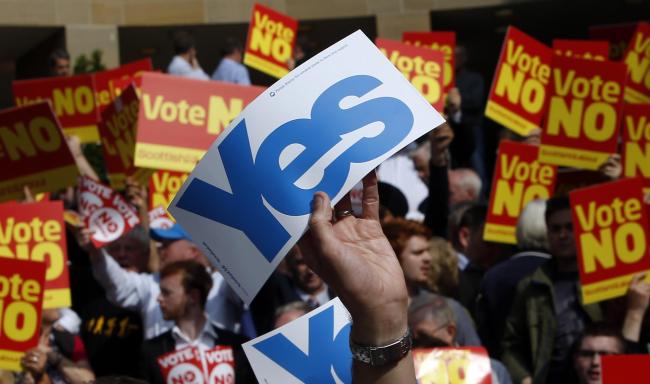307 years after Scotland and England joined kingdoms, the Scots were given the opportunity to break away from the Union. On the 14th of September 2014 Scotland voted to reject independence. 55% of the public voted in favour of remaining as part of the United Kingdom. So what has changed in the 6 years since then, and is it possible another referendum is coming our way?
In 2014 one of the main arguments made by the “Better Together” campaign backed by the Scottish Conservatives, Scottish Labour and the Scottish Liberal Democrats was that Scotland staying in the UK would mean staying in the European Union. “Better Together” argued that an independent Scotland would not be part of the EU. The Scottish Independence movement lead by the SNP argued against this idea. “Better Together” won the public argument and the public vote. 2 years later we had a different referendum, one based on leaving the EU. On the 23 June 2016 62% of Scots voted to remain in the European Union but overall the UK vote was to leave by 52% to 48%. The UK will formally leave the EU on the 31st January.
Scotland once again has to think about it’s place as both a member of the UK, as chosen in 2014 and the wishes of its people to remain part of the EU in 2016. These were not the same questions. So what are the possible ways forward?
That brings us back to the independence question. Currently in the Scottish Parliament the majority of MSPs are from independence supporting parties like SNP and the Scottish Greens. Does this not suggest Scots want another referendum? This is a question we are facing today. Former Prime Minister Theresa May said following the EU referendum result, “Now is not the time”. Current Prime Minister Boris Johnson said on Tuesday, after the UK 2019 General Election results which saw the independence supporting SNP pick up 48 of the 59 Scottish seats, that he too wanted to respect the 2014 result.
Every pol l about Scottish Independence since the referendum and the Brexit referendum has shown an increasing support for independence, including one that shows 52% of Scots would vote Yes in the event of a referendum. With each passing election the voters in Scotland are distancing themselves from the choices of the voters elsewhere in the United Kingdom. However, it was agreed by the UK parliament and indeed the Scottish parliament that the final say on whether or not to grant another referendum is up to the Prime Minister. The last 2 Prime Ministers have formally rejected written requests from the Scottish Government to be given permission to hold one.
l about Scottish Independence since the referendum and the Brexit referendum has shown an increasing support for independence, including one that shows 52% of Scots would vote Yes in the event of a referendum. With each passing election the voters in Scotland are distancing themselves from the choices of the voters elsewhere in the United Kingdom. However, it was agreed by the UK parliament and indeed the Scottish parliament that the final say on whether or not to grant another referendum is up to the Prime Minister. The last 2 Prime Ministers have formally rejected written requests from the Scottish Government to be given permission to hold one.
Why is the Prime Minister rejecting the possibility of another one?
The Prime Minister said that he didn’t want to hold another referendum because the people of Scotland voted no in an apparent “Once in a generation” referendum. This is a quotation from the former First Minister of Scotland as well as the current First Minister. Scots also voted no in a referendum where they were told being part of the UK “guaranteed continued membership of the EU,” a statement each of the last 3 UK Prime Ministers made.
Is it likely that another vote would be held under Boris Johnson’s leadership? No. Is it impossible for another one to take place? Only time will tell…
One thing is for certain, Scotland- A Question of Independence, will not go away anytime soon.
Sources: BBC News, The National, Electoral Commission

